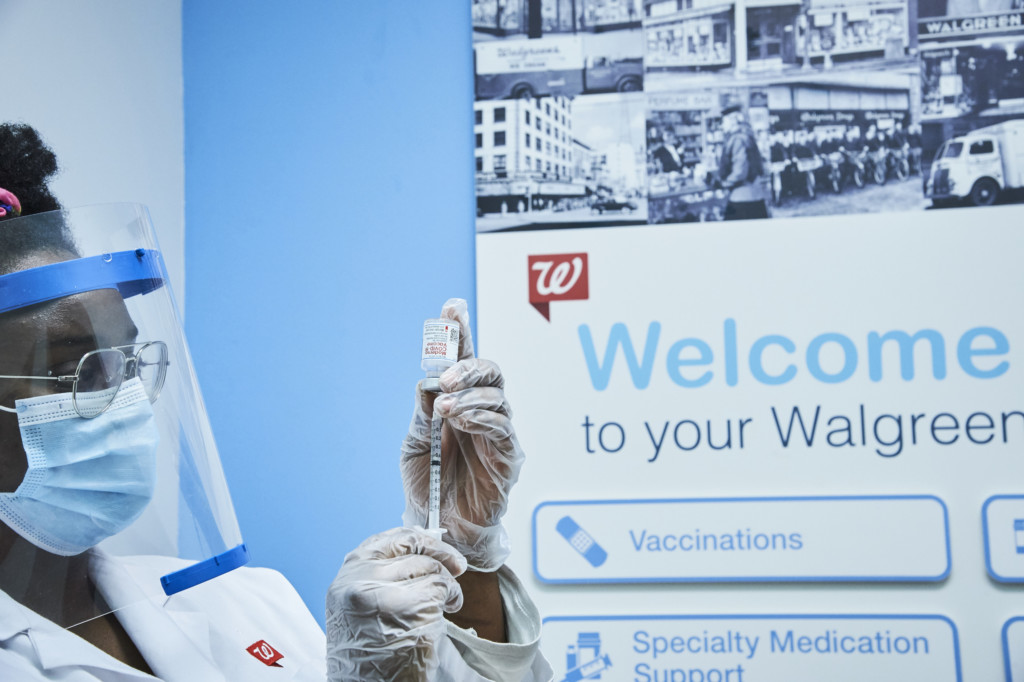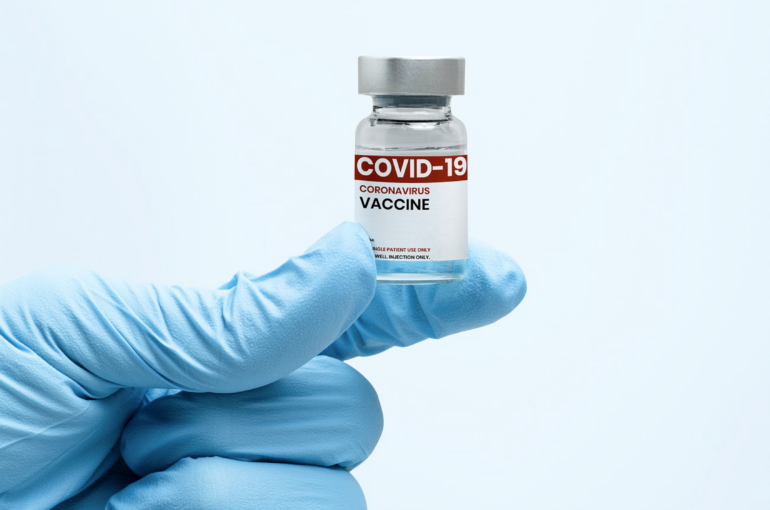How is Covid-19 vaccine distribution progressing and what should people expect in the weeks and months ahead?
A panel of experts discussed those and other questions about COVID vaccinations during a discussion hosted by the Executives’ Club of Chicago.
The Feb. 8 event, called Rolling Up Our Sleeves: Distribution of the Covid-19 vaccine, was moderated by Sumit Dutta, chief medical officer of OptumRx, and featured panelists:
- Dr. Allison Arwady, commissioner of the Chicago Department of Public Health.
- Dr. Matthew Hepburn, vaccine development lead within the federal COVID-19 response.
- John Standley, executive vice president of Walgreens Boots Alliance and president of Walgreens.
How many vaccines does Chicago have?
Arwady said usually the health department has plenty of vaccines, the standard flu vaccine for example, and it has to work to get people to take it. The supply of Covid-19 vaccines, though, is not keeping up with the demand, she said.
“Our job at the local level is to turn this vaccine into vaccinations, to get it into arms,” Arwady said. “What’s been different about this is we’ve never had the demand outstripping the supply so much.”
Chicago receives about 6,000 first doses of the vaccine every day, but it has 750,000 people across the city who are eligible to receive those doses, she said.
We’re now in Phase 1B of vaccine distribution. This means Chicagoans age 65 and older, those living in settings like homeless shelters and correctional facilities, and frontline essential workers are now able to get vaccinated. https://t.co/3IKgWMc20E #ProtectChicago #VaxChiNow pic.twitter.com/8ce0sWSaq7
— Mayor Lori Lightfoot (@chicagosmayor) January 25, 2021
Who is getting the vaccine?
Chicago follows state guidance on who is eligible for the vaccine, starting with frontline health workers and the most statistically vulnerable people in the general population.
The city reviewed crowded housing areas and neighborhoods with high rates of uninsured people and underlying conditions that put people at risk for Covid. And it looked at which areas have the most cases and deaths connected to the virus, Arwady said.
The city used that information to help determine where to distribute vaccinations. It has also used the same systems that drive voter turnout and collect census participation to knock on doors and reach people who may not be inclined or know how to sign up for the vaccine online.
“It’s our job to make sure that vaccine is getting to the places where it is most needed. That’s what gets Chicago past Covid,” Arwady said.
How is the private sector helping?
The private sector has a role in getting vaccinations to patients, and Walgreens has been distributing vaccines in long-term care facilities while also answering questions from its customers, Standley said.
“We’ve made tremendous progress with this program. We’ve administered so far about 2.3, 2.4 million vaccines as of (Feb. 8),” Standley said.
He said Walgreens pharmacies have been inundated with calls from customers asking for guidance from pharmacists.
“I think we’re playing a critical role not only in terms of vaccinating in the long-term care facilities right now but also providing critical information to our patients, customers and the entire country that the vaccine is safe and it’s appropriate to get it.”

Why should Americans trust the quickly developed COVID-19 vaccines?
Hepburn said the federal government set out from the start to act quickly and safely, and the vaccines have been through rigorous, transparent testing with positive results.
“We fundamentally challenged the notion of the tradeoff between that you can either be fast or you can have a high-quality product. And we said absolutely not we’re going to do both,” he said.
He noted the vaccines were tested in rigorous clinical trials and the results were peer reviewed in medical journals. And the processes and results were and are available to the general public to review.
“I think that these are safe and effective vaccines. That’s my professional opinion. But just look at the research,” Hepburn said.
What’s the level of concern about the so-called UK variant?
Early testing on the UK variant suggests it may be more transmissible than the original virus, Hepburn said.
“The more transmissible, the worse it is. So we are very concerned that it could have an impact on the current pandemic,” he said.
But vaccinations appear to be effective against either strain of the virus, he said.
“It looks like vaccines work about as well against the UK variant as they do against, if you will, version one of coronavirus,” Hepburn said.
“It seems all of our vaccines so far are doing very, very well, variant or not, of protecting against severe disease.”
People may still get mild to moderate symptoms, but if we can keep patients out of the hospital, that’s a positive, he said.
Scientists confirmed that out of 200 recent COVID-19 patients, they found one with the UK virus variant in Chicago. https://t.co/EE9FLLCmQH
— ABC 7 Chicago (@ABC7Chicago) January 16, 2021
What’s next?
The immediate focus remains vaccine distribution and eventually helping employers provide vaccines to their workforces, but already some are looking beyond the pandemic.
Arwady and Standley said the lessons learned about technology, distribution and outreach right now will be useful for years to come in business and public health efforts.
“If we get really good at responding to this pandemic… then we can turn our attention to all those other things that still plague us,” Hepburn said.
“There’s no reason we can’t take this playbook and tackle other health problems.”

